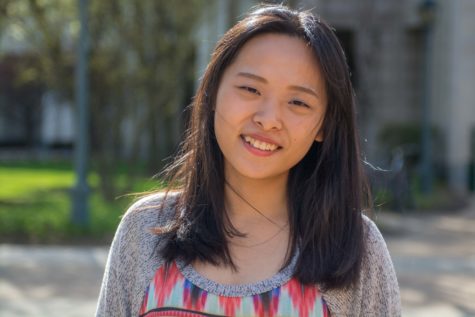Referendum results have USG remain neutral to the tobacco-free policy
In the last Undergraduate Student Government (USG) General Assembly of this semester, a resolution was passed based on the recent tobacco-free referendum. Because no majority was achieved in two out of the three questions asked in the referendum, the General Assembly decided to remain neutral on the policy proposed by Case Western Reserve University Medical Director Elizabeth Click.
The results from the first question of the referendum, which asked for students’ attitude on three different types of tobacco products, show that there is a plurality of students who support banning traditional tobacco and smokeless tobacco. At the same time, only 32 percent of students voted for an outright ban on e-cigarettes. However, in the second question, where students were asked if they would support the proposed tobacco-free policy, 45 percent of students voted positively, even though the policy will ban all three types of tobacco products.
Tobacco-Free Subcommittee Co-Chairs Barry Goldberg and Andrew Thompson believe that the results stem from a lack of understanding of the policy.
“I think the only information that can be solidly gained from question two’s responses is that many students do not understand what they are voting on,” commented Goldberg. “I think that the discrepancy between question two and question one shows some confusion which is in perhaps large part on us, for not doing a good enough job to educate people.”
Since no majority was achieved in either question one or question two, and there is an inconsistency in students’ responses to the first two questions, Goldberg and Thompson, who wrote the resolution, felt ambivalent in taking a stance on the proposed tobacco-free policy. In the General Assembly on Tuesday night, April 19, Goldberg and Thompson presented their draft of the resolution, with a clause stating disapproval to the proposed tobacco-free policy. Goldberg soon proposed to strike this clause, and his proposal was seconded by Thompson.
Thompson later explained that they only suggested to amend their own resolution because they wanted to create an opportunity for the General Assembly to have opinions on the referendum results.
Many representatives were concerned that a definite opposition to the policy would not best reflect student attitude, since a plurality was indeed achieved in favor of the tobacco-free policy. Therefore, the clause was struck with a sweeping vote, as the USG did not want to misinterpret student opinion by taking a stance against the resolution based the varied results of the referendum.
“I think it would be important to err on the side of not supporting the policy, given how difficult it would be to undo the policy,” said Thompson. At the same time, he conceded that remaining neutral on the tobacco-free policy would perhaps give more credibility to USG on the issue.
Overall, Goldberg considered the vote on the tobacco-free referendum poorly run. He thinks that technical difficulties, loose bylaw enforcement and ill-informed students contributed to the confusion in the vote.
The resolution was ultimately passed by the USG General Assembly. It will now be sent to the administration for further review. The final decision regarding the proposed tobacco-free policy will be made by the Board of Trustees, though the resolution does call for USG to “be given the ability to appoint up to the greater of four students and up to one fourth of the total membership of any committee formed to oversee the implementation of any changes to the University’s tobacco policy.” This provision is expected to ensure continued student involvement in the event that the Board of Trustees passes the tobacco-free policy.

Celia Wan is a sophomore majoring in mathematics and history. She joined The Observer in the fall of 2015 and became the news editor at the end of her...

